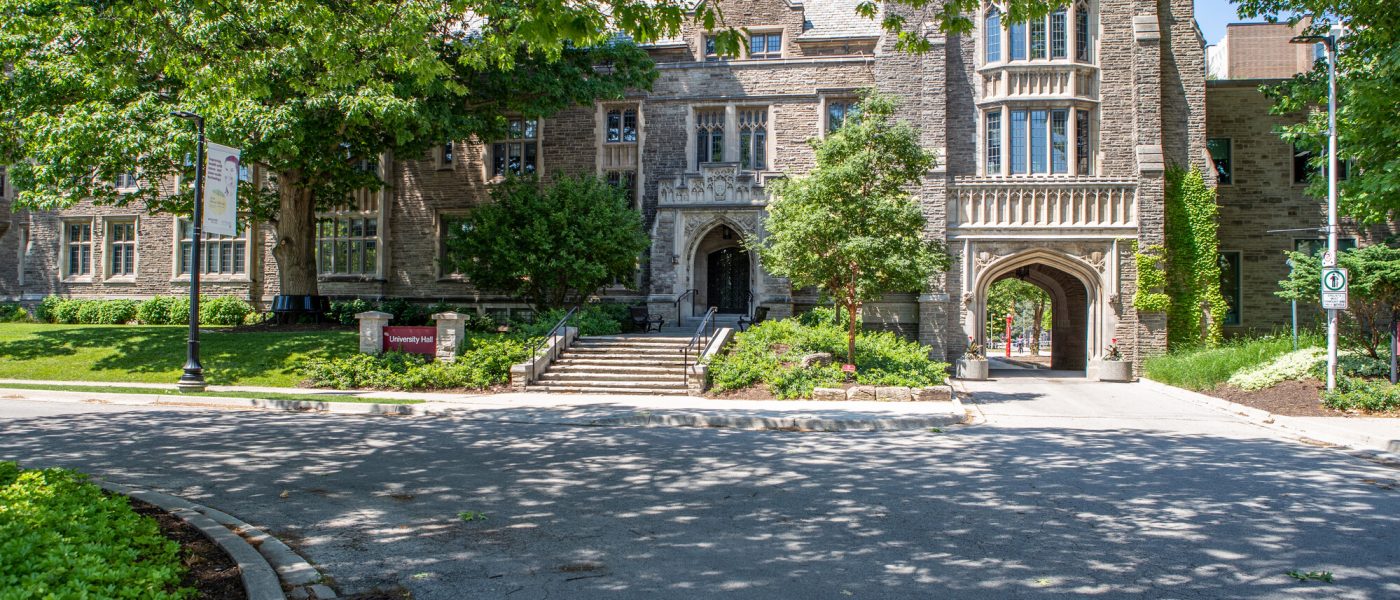Disability Management Certificate

Disability Management Certificate
Students will learn about disability and how clients may present with complex conditions as part of their diagnoses. Participants are given the opportunity to practice intervention strategies appropriate for clients and families. Through simulation exercises students will build awareness and empathy. They will also develop knowledge translation skills to successfully work as part of a multidisciplinary team through applied research and the completion of a group Capstone project.
This is a course based certificate with both full time and part time options. Students must be registered in a Level II or above in a Social Sciences degree program. Not open to continuing students. Contact socscfac@mcmaster.ca for more information.
About The Certificate
Students may begin taking the certificate courses after they have completed Level I. There is no application process or admission into the certificate stream. Simply take the six required courses and declare the certificate at the point of graduation.
Courses for the Certificate
- SOCSCI 2IS3 Intervention Strategies Working With Disabilities
- SOCSCI 2FD3 Foundations of Disabilities
- SOCSCI 2PN3 Pharmacology for Non-Medical Health Professional
- SOCSCI 2WF3 Working With Families with Disabilities
- SOCSCI 2LI3 Legal Implications and Brain Disorders
- SOCSCI 2CP3 Capstone Project
Undergraduate Scholarships, Bursaries and Awards
All undergraduate students accepted for admission to McMaster University are automatically considered for a McMaster University entrance award. Additional entrance awards, in-course scholarships, bursaries and other forms of financial assistance is available to you at various stages of their undergraduate careers.
Each scholarship, bursary, Government Aid or Work Study Program a has its own unique application process and requirements. More information on financial aid visit the Office of the Registrar website.
Academic Advising
The Academic Advising office is run through the Office of the Associate Dean. The primary goal of the Advising Office is to provide all Social Sciences undergraduate students with the information and guidance they need to succeed in their academic careers.
Advisors can help you make the right academic decisions by explaining policies and regulations as well as presenting different options and supports available in your studies.
An academic advisor can assist you with:
- Course requirements, dropping and adding courses.
- Program selection, application and changes.
- Studying abroad.
- Transfer credits.
- Petitions for missed term work, deferred examinations and special consideration.
- Appeals procedures
- Referral to other campus services.
Learn more about Academic Advising in the Social Sciences.
SOCSCI 2FD3 Foundations of Disabilities
3 unit(s)
This course examines the major disabilities within Canadian culture including physical, developmental, organic, acute, chronic, and acquired disabilities. There will be a focus on the symptoms associated with each disability with special attention to the relationship each disability may or may not have to mental illness.
Three hours; one term
Prerequisite(s): Registration in Level II or above of a program in the Faculty of Social Sciences
(Not open to Continuing Students)
SOCSCI 2IS3 Intervention Strategies Working With Disabilities
3 units(s)
Treatments for people with various types of disabilities will be examined. Components of this course will be used to access community resource professionals currently working with people with various types of disabilities; labs will also be used by students to learn practice-based structural interviewing.
Three hours; one term
Prerequisite(s): Credit or registration in SOCSCI 2FD3 and registration in Level II or above of a program in the Faculty of Social Sciences
(Not open to Continuing Students)
SOCSCI 2PN3 Pharmacology for Non-Medical Health Professionals
3 unit(s)
This course will identify medications and their use in treating various forms of disability and mental illness. Students will learn to classify medications and will understand the various families of medications. The content is not intended to train students to deliver medication, but to familiarize them instead with the use of medications in the treatment of various disabilities.
Three hours; one term
Prerequisite(s): Credit or registration in SOCSCI 2FD3 and registration in Level II or above of a program in the Faculty of Social Sciences
(Not open to Continuing Students)
SOCSCI 2WF3 Working With Families with Disabilities
3 unit(s)
In this course students will explore and evaluate modern intervention techniques of community health care in providing services to families who have a member with a disability. Particular attention will be to review community resources for families and best practices related to family intervention.
Three hours; one term
Prerequisite(s): Credit or registration in SOCSCI 2FD3 and registration in Level II or above of a program in the Faculty of Social Sciences
(Not open to Continuing Students)
SOCSCI 2LI3 Legal Implications and Brain Disorders
3 unit(s)
This course will investigate the law as it pertains to brain disorders, and outline the significance of acting in compliance with the Statutes of Ontario.
Three hours; one term
Prerequisite(s): Credit or registration in SOCSCI 2FD3 and registration in Level II or above of a program in the Faculty of Social Sciences
(Not open to Continuing Students)
SOCSCI 2CP3 Capstone Project
3 unit(s)
Students will examine a topic that contributes to the field of brain disorders management or mental health and disability management. While using qualitative or quantitative research methods to investigate their topic, students will apply problem-based learning.
Three hours; one term
Prerequisite(s): Credit or registration in SOCSCI 2FD3 and registration in Level II or above of a program in the Faculty of Social Sciences
(Not open to Continuing Students)

